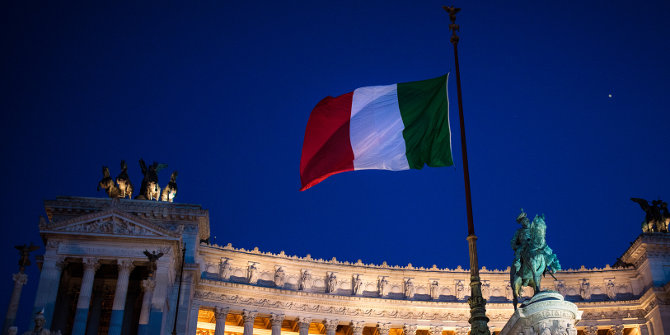The European Parliament election in Croatia will be held just two months after the country’s parliamentary election in April. Ivor Sokolić writes that much of the debate from the parliamentary election is likely to continue during the European vote.
This article is part of a series on the 2024 European Parliament elections. The EUROPP blog will also be co-hosting a panel discussion on the elections at LSE on 6 June.
Croatian political parties are likely going to use the 2024 European Parliament elections to increase their own domestic legitimacy. The messy Croatian parliamentary elections held in April have further eroded satisfaction with domestic politics, while European Union institutions are seen as more credible in the eyes of the Croatian public.
This means that much of the debate from the domestic parliamentary elections will likely continue during the European elections. Parties outside the centre, both on the left and the right, are likely to perform well at the expense of traditional centrist parties and the key issues will remain unchanged. The debate will likely focus on the economy and corruption, as well as ever-present questions of national identity in Croatia.
April’s parliamentary election
The incumbent Croatian Prime Minister Andrej Plenković and his centre-right HDZ (Croatian Democratic Union) seemed to have little to fear going into the April 2024 parliamentary elections. But their plans for a smooth retention of power were thrown into disarray when Zoran Milanović, the populist Croatian President and vocal opponent of the Prime Minister, announced that he would run for Prime Minister as part of the main opposition party, the centre-left SDP (Social Democratic Party).
He was ultimately prevented from running by the constitutional court. This galvanised the electorate and resulted in a high turnout, but it also fragmented the vote enough to result in no overall majority and no clear coalition opportunities. Only around a month later was a government formed, when the HDZ managed to strike a coalition agreement with the far-right DP (Homeland Movement).
The messy election and its even messier aftermath are likely going to further reduce satisfaction with democracy in Croatia. According to the latest Eurobarometer, this is already very low in Croatia, at 39% versus the EU average of 56%. Since the European Parliamentary elections are likely to be smoother (the political bargaining is likely to be less tribal, but also far less reported in the Croatian media), this may result in an increase in satisfaction with how democracy works in the EU.
This is already slightly higher in Croatia than the EU average (53% in Croatia, versus 52% in Europe). This is significant for the country’s politics since politicians may use the European Parliament elections to boost their domestic political standing. Plenković already announced in April that he would lead the HDZ ticket at the elections to the European Parliament.
Key issues
The European Parliament elections will therefore likely revolve around the same issues as the parliamentary elections. These are the economy and corruption, reflecting the priorities of other electorates in Europe. In Croatia, Eurobarometer surveys show that these are disproportionately important to Croatian voters when compared to other issues, such as security and defence; migration and asylum; and the environment.
Unlike the rest of Europe, the Croatian political debate is much narrower, even with the rise of parties outside the centre, on the left and the right. These parties are likely to perform well, as they did in the parliamentary elections, at the expense of traditional centrist parties. The high turnout for the domestic parliamentary elections may also result in more people choosing to vote in the European Parliament elections, which have previously had low turnout levels in Croatia.
Croatia and Europe
Regardless of the result of the vote for the European Parliament, the impact on Croatian politics may not be significant. Croatia tends to follow, rather than lead, on the European stage. It is a small and young state whose nation and state building projects are closely tied to defining itself as “European”. Decisions made at the EU level are therefore seen as highly legitimate by both the Croatian public and Croatian politicians (barring perhaps only the populist and often Eurosceptic President Milanović). Following these policies helps sustain the image of a European Croatia. For this reason, Croatia has not seen much Euroscepticism take hold in the country.
A right leaning European Parliament, especially with some far-right elements, will only reflect the composition of the new Croatian government and will likely increase their legitimacy. Security, immigration, asylum and Euroscepticism are not as prominent in Croatia as they are elsewhere in Europe. Croatia still looks to NATO in terms of security, immigration has yet to properly become an agenda leading issue in the country and asylum seekers rarely stay in the country for long.
Even if these issues are discussed prominently in the European Parliament or if they are promoted by the Croatian far right, if they gain enough votes, it is unlikely to reverberate significantly across the Croatian political spectrum. At least at first. There is a potential agenda setting effect over time. If such issues are more prominently debated at the European level and then echoed by parties at the national level, who will have gained added legitimacy from representing Croatia in the EU’s institutions, then such issues may become more prominent domestically in the future.
Note: This article gives the views of the author, not the position of EUROPP – European Politics and Policy or the London School of Economics. Featured image credit: European Union





